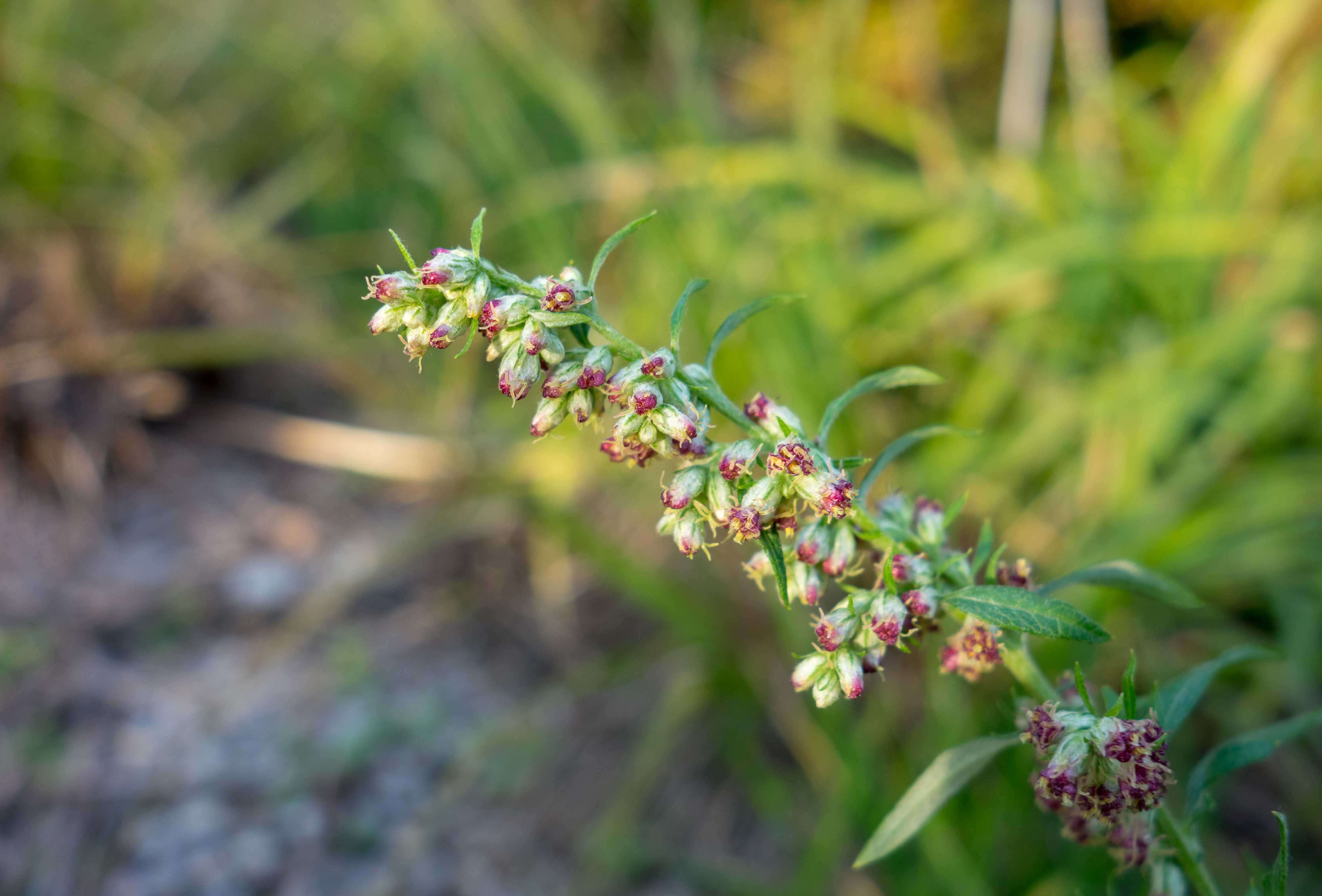
(Vienna, 23 July 2025) Summertime is pollen season time as well. Now is the time when weeds start to release pollen. This refers to the herbaceous plants mugwort and ragweed. Both are highly allergenic and cause allergic symptoms even at relatively low pollen concentrations.
The dry weather of recent months has led to a later start of the flower. However, recent rainfall is promoting plant growth. The intensity of flowering will not reach the level of last year's ragweed pollen season, which was the second most intense in Vienna's 50-year history of measurements.
Mugwort will also make things exciting – flowering in autumn depends entirely on the weather conditions in September. This is shown by research conducted by the Vienna Pollen Service at MedUni Vienna.
The mugwort pollen season usually begins in early July in Vienna and generally in eastern Austria. This year, the first mugwort pollen grains were counted only recently. The first flowering plants can also already be spotted. The flowering period lasts from July to September, with the main flowering period in mid-August. This flowering phase is largely attributable to the native mugwort species, common mugwort (Artemisia vulgaris).
An allergy to mugwort is relatively common, ranking third among pollen allergies, just after grasses and birch. In addition, even low pollen concentrations are sufficient to cause allergic symptoms in mugwort (similar to the related aeroallergen ragweed).
Mugwort flowers longer due to neophytic species and climate change
Since 2023, a significant change in the mugwort pollen season has been observed in Vienna. This is most likely due to the establishment of two late-flowering neophytes: Chinese mugwort (Artemisia verlotiorum) and annual mugwort (Artemisia annua). A neophyte is a plant that spreads to areas where it was not originally native. A similar situation prevailed in northern Italy (South Tyrol region), where both species of mugwort now cause measurable pollen concentrations in autumn every year, thereby extending the season.
The Vienna Pollen Service at MedUni Vienna has also observed this development: the peak pollen concentrations for mugwort in autumn in 2024 was three times higher than in summer. Phenological observations have now also shown that both neophytic species flower in Vienna.
Ragweed – milder season than 2024
Ragweed (Ambrosia artemisiifolia) is a long-known neophyte. Typical locations include fallow land such as roadsides, motorways, construction sites and fields. Depending on weather conditions the pollen season lasts from August to October.
This year, flowering is expected to be slightly later due to the dry conditions in early summer. This is consistent with reports from Hungary, which is heavily infested with ragweed. If those affected are already showing symptoms at this stage, they are very likely to react to mugwort, which is closely related to ragweed and is highly cross-reactive.
Good news: the season will be milder than last year. This is partly because the ragweed pollen season in 2024 was extremely intense, ranking second in Vienna's 50-year history of measurements.
Long-distance transport from neighbouring countries plays a major role, especially in the case of ragweed. When the wind is coming from the east or south-east, additional ragweed pollen is transported.
Ragweed is a well-known problem for the health sector, agriculture and infrastructure maintenance. Pulling up the plants before they flower is considered the most effective method, but it is labour-intensive.
Maximilian Bastl from the Vienna Pollen Service at MedUni Vienna sums it up: "Anyone with pollen allergies to weeds should now prepare for pollen release. Climate change is having a noticeable effect on the pollen season: the window without pollen in the air is getting smaller and smaller. Mugwort pollen is already dispersed and will be with us until autumn. Ragweed pollen will further exacerbate the situation in August."
Further information
Pollen Service Vienna website: www.pollenservice.wien
Social media: "pollenpaar" on Instagram, Bluesky and TikTok
Link to MedUni Vienna publication on mugwort: https://link.springer.com/a r ticle/10.1007/s10453-024-09836-8